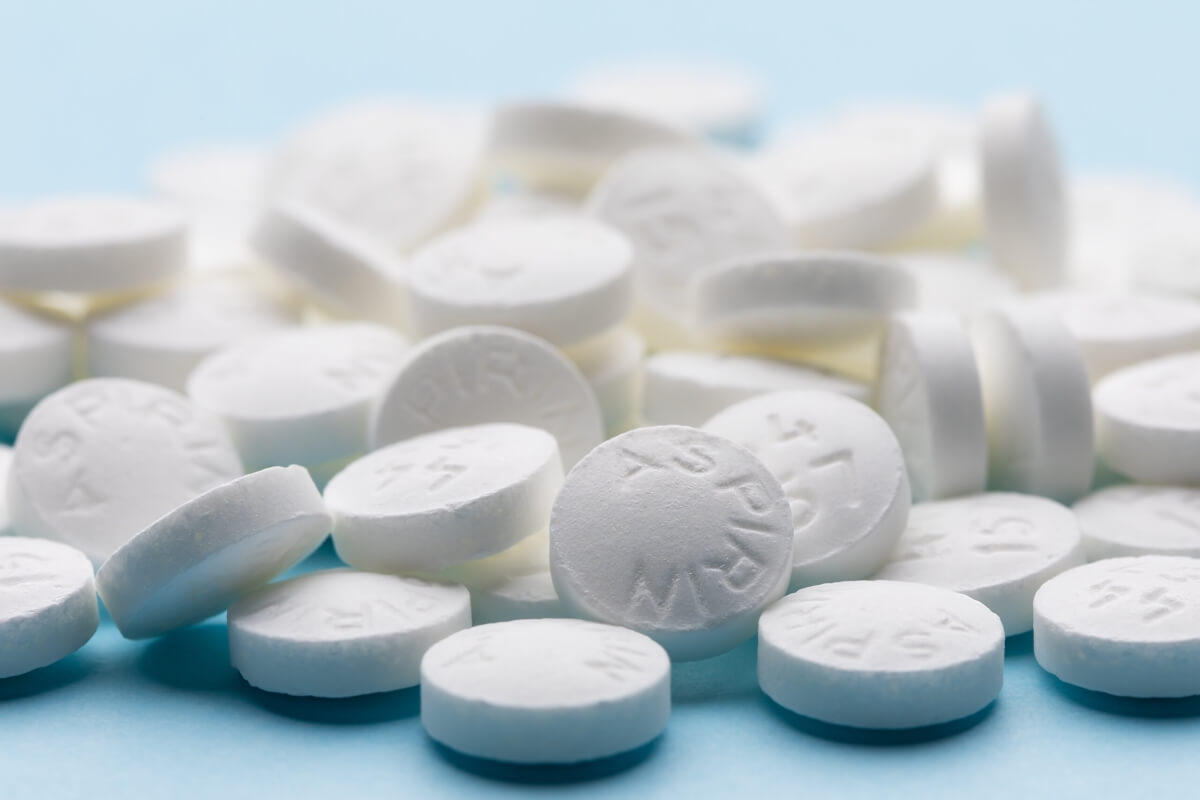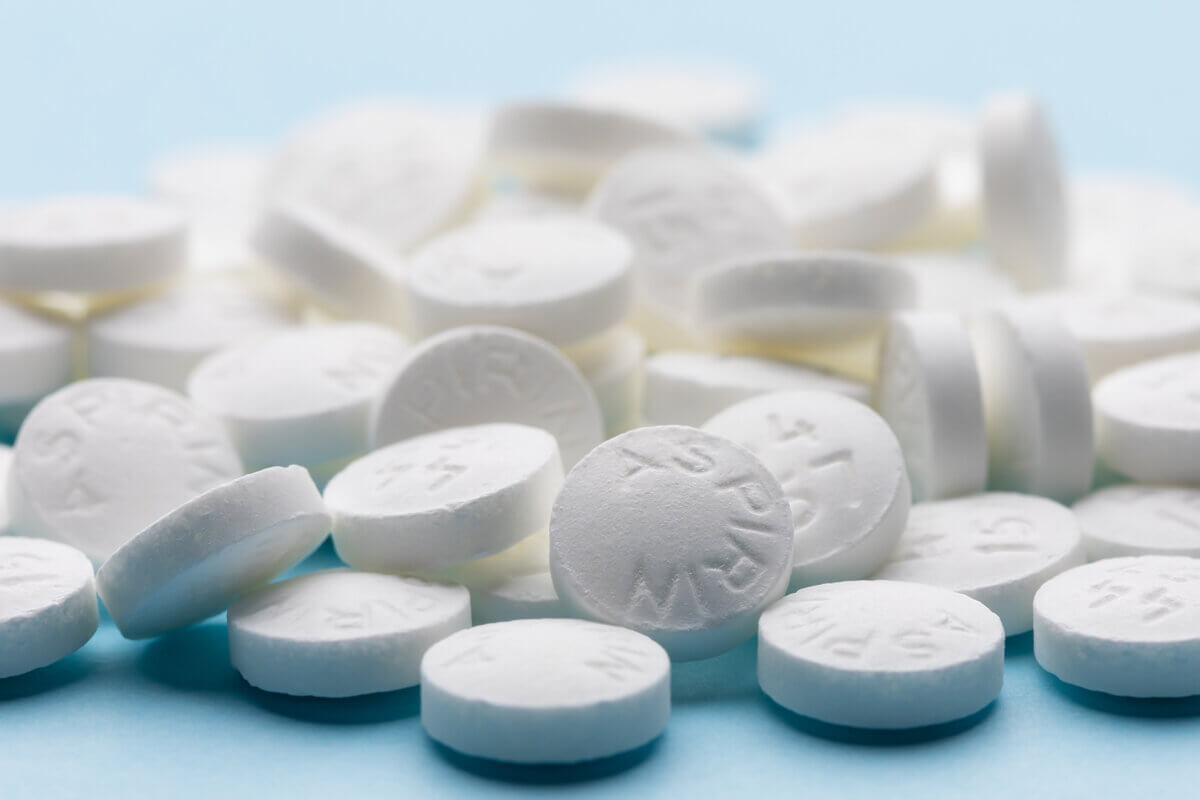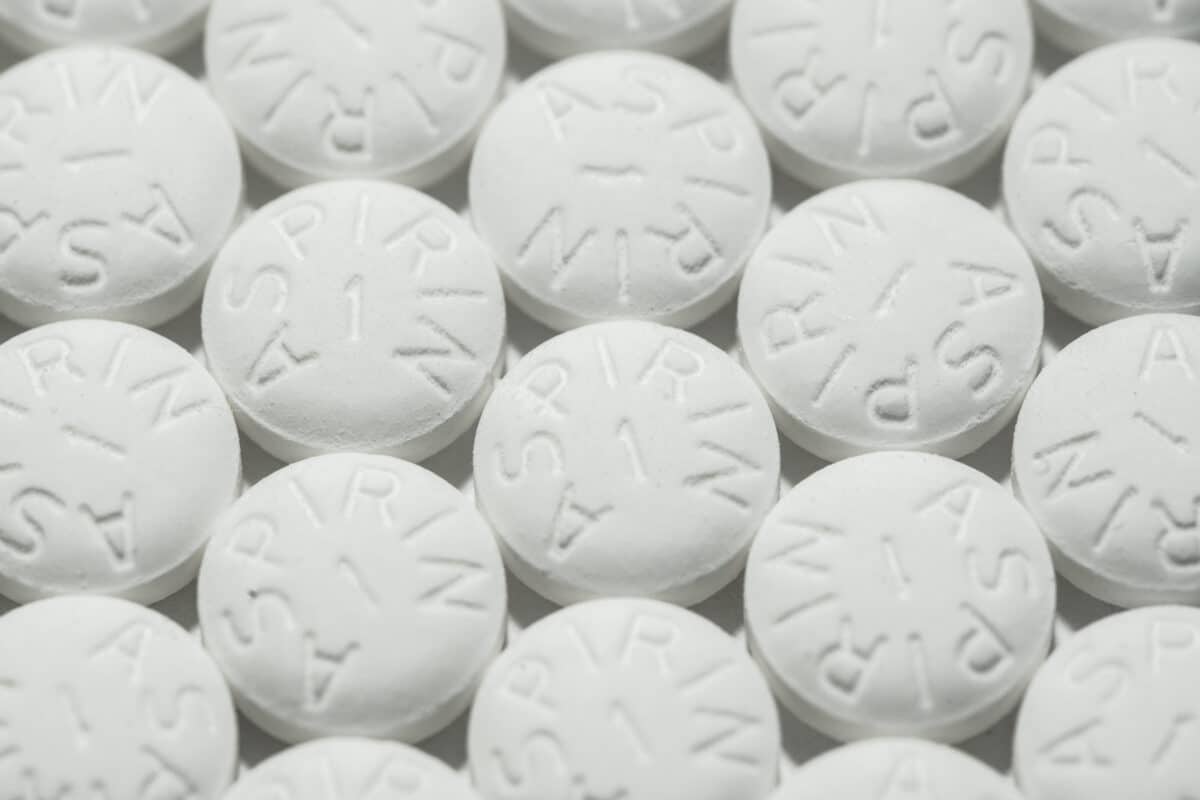(Photo by Irin Fierce on Shutterstock)
In A Nutshell
- Aspirin may reduce cancer risk for some older adults (around 59%) but raise it for others (about 41%).
- CHIP, a genetic blood condition, was the strongest predictor of benefit; smoking was the strongest predictor of harm.
- Other important factors included age, body weight, diabetes, and family history of cancer.
- Personalized predictions lowered 5-year cancer risk by an average of 2.3% compared with giving aspirin to everyone.
- Doctors must also weigh bleeding risk and heart health when deciding whether aspirin makes sense for an individual.
MELBOURNE — For decades, doctors have debated whether older adults should take a daily aspirin to prevent cancer. New research reveals they may have been asking the wrong question. Instead of wondering whether aspirin works for everyone, scientists have discovered that the decades-old medication helps some seniors avoid cancer while potentially increasing the hazard for others.
An important new study published in JAMA Oncology analyzed 9,350 healthy adults aged 70 and older and found that blanket aspirin recommendations miss the mark for nearly half of all seniors. Using advanced predictive modeling, researchers identified distinct groups: 59% of participants were likely to benefit from daily aspirin, while 41% were better off avoiding it altogether.
These findings shred the one-size-fits-all approach that has dominated medical thinking about aspirin and cancer prevention for generations. Rather than treating all older adults the same way, the research points toward a future where genetic factors and personal characteristics guide treatment decisions.
When Aspirin Helps and When It Harms
Among seniors predicted to benefit from aspirin therapy, the medication was associated with a 15% lower hazard of developing cancer. But for those in the unfavorable group, aspirin was associated with a 14% higher hazard of cancer. This showed meaningful differences between who should and shouldn’t take daily aspirin for cancer prevention.
Dr. Le Thi Phuong Thao from Monash University, who led the research team, identified several factors that determined which group people fell into. Those most likely to benefit were older, had never smoked, carried specific genetic mutations, had family histories of cancer, and maintained lower body weights. Current smokers with higher BMIs, diabetes, and personal cancer histories were more likely to see increased cancer hazard from aspirin.
Most striking was the role of a genetic condition called clonal hematopoiesis of indeterminate potential, or CHIP. This age-related condition involves mutations in blood-forming stem cells with a variant allele frequency of 10% or greater and affects 5.7% of study participants. CHIP emerged as the strongest predictor of aspirin benefit, while current smoking was the strongest predictor of potential harm.
“Current smoking was the most important predictor for a detrimental effect of aspirin on cancer incidence,” the researchers noted, while CHIP was “the most important predictor for a beneficial effect.”
Before popping that daily aspirin, talk to your doctor about whether it’s actually helping you — or putting you at risk of harm. (Photo by Shane Maritch on Shutterstock)
The Science Behind Personalized Prevention
CHIP showed particular importance because it’s linked to increased inflammation in the body. People with this genetic condition have elevated levels of inflammatory substances in their blood, including interleukin-6 and tumor necrosis factor-alpha. Aspirin works by blocking cyclooxygenase enzymes that drive inflammation throughout the body, potentially explaining why it’s particularly effective for people with CHIP.
The research challenges decades of medical advice that has swung between enthusiastically recommending aspirin for everyone to questioning its benefits entirely. Major medical organizations, including the U.S. Preventive Services Task Force, have struggled with mixed research results, particularly for people over 60.
These conflicting results may have occurred because previous studies lumped together people who respond very differently to aspirin therapy. When researchers separated participants based on their predicted responses, clear patterns emerged.
A New Era of Precision Medicine
Using their predictive model, researchers calculated that personalized treatment decisions improved five-year cancer risk reduction by an average of 2.3% compared to giving aspirin to everyone. While this might seem modest, it represents a significant advance in precision medicine for cancer prevention.
The model weighs factors together instead of looking at each risk factor one by one. Age, smoking history, genetic status, family history, and body weight all contribute to the final calculation of whether someone is likely to benefit or be harmed by aspirin therapy.
However, the researchers emphasize that cancer prevention represents just one piece of the aspirin decision puzzle. The medication also affects bleeding risk and cardiovascular disease prevention, factors that must be weighed alongside cancer considerations.
What This Means for Patients
The study focused on healthy older White adults in Australia who began aspirin therapy after age 70, limiting how broadly the findings apply to other populations. The researchers also examined cancer prevention over five years, while previous studies suggest aspirin’s benefits may be more pronounced when started younger and continued longer.
Before these findings can change medical practice, the predictive model needs validation in different populations. The researchers provide mathematical equations that other scientists can use to test their approach in diverse groups of patients.
This research points toward a move away from blanket medical recommendations toward individualized treatment strategies. Rather than asking whether aspirin prevents cancer, doctors may soon routinely consider genetic profiles, lifestyle factors, and personal medical histories to determine who is most likely to benefit.
For some older adults, genetic testing for conditions like CHIP could potentially become as routine as checking cholesterol levels. The goal isn’t to complicate medical decision-making but to make it more precise and effective.
As genetic testing becomes more accessible and affordable, the era of one-size-fits-all medicine may be drawing to a close. The daily aspirin question that has puzzled doctors and patients for decades may finally have an answer, but it’s different for each person.
Aspirin Study Q&A
Q: Who benefits most from taking daily aspirin to prevent cancer?
Older adults who never smoked, have lower body weight, a family history of cancer, and especially those with a genetic condition called CHIP were most likely to benefit.
Q: Who should avoid taking aspirin for cancer prevention?
Current smokers, people with higher BMI, diabetes, or a prior cancer history were more likely to be harmed by aspirin use in the study.
Q: What is CHIP and why does it matter?
CHIP, or clonal hematopoiesis of indeterminate potential, is a genetic condition affecting blood-forming cells. In this study, it was the strongest predictor of aspirin benefit, possibly due to aspirin’s anti-inflammatory effects.
Q: Does this mean everyone over 70 should get genetic testing before taking aspirin?
Not yet. CHIP testing is not standard care. The researchers stress that their model needs validation in more diverse populations before being used in routine practice.
Q: What else should patients consider besides cancer risk?
Bleeding risk and effects on cardiovascular disease remain crucial factors in deciding whether to use daily aspirin.
Paper Summary
Methodology
This study was a secondary analysis of the ASPREE randomized clinical trial, which originally investigated the effects of low-dose aspirin (100 mg daily) versus placebo in 19,114 healthy adults aged 70 and older. The current analysis focused on 9,350 participants who provided blood samples for genetic testing. Researchers used advanced statistical modeling to predict individualized treatment effects, incorporating factors such as age, sex, body mass index, smoking status, family history of cancer, and CHIP status (defined as genetic mutations with variant allele frequency of 10% or greater). The team evaluated 12 different prediction models and selected the one with the highest decision accuracy through bootstrap validation.
Results
Over a median follow-up of 4.5 years, 1,009 participants (10.8%) developed cancer. The predictive model divided participants into treatment-favorable (59.1%) and treatment-unfavorable (40.9%) groups. In the favorable group, aspirin reduced cancer risk by 15% (hazard ratio 0.85), while in the unfavorable group, aspirin increased cancer risk by 14% (hazard ratio 1.14). CHIP was the strongest predictor of aspirin benefit, followed by older age, non-smoking status, family history of cancer, and lower BMI. The personalized approach improved absolute cancer risk reduction by a median of 2.3% compared to treating everyone with aspirin.
Limitations
The study was limited to relatively healthy older White adults in Australia who began aspirin therapy after age 70, restricting generalizability to other populations or younger individuals. Blood samples were collected before and during the first year after randomization, which could introduce selection bias. The analysis focused on five-year cancer outcomes and did not assess longer-term effects. The predictive model requires validation in independent populations before clinical implementation.
Funding and Disclosures
The ASPREE trial was supported by the National Institute on Aging, National Cancer Institute, National Health and Medical Research Council of Australia, Victorian Cancer Agency, and Monash University. Several authors received grants from various funding agencies. The study reported minimal conflicts of interest, primarily consisting of research grants and consulting fees unrelated to the current work.
Publication Information
“Low-Dose Aspirin for Individualized Cancer Prevention in Older Adults: A Secondary Analysis of the ASPREE Randomized Clinical Trial” by Le Thi Phuong Thao, PhD, et al. Published online September 25, 2025, in JAMA Oncology. DOI: 10.1001/jamaoncol.2025.3593. Trial registration: ClinicalTrials.gov NCT01038583.


